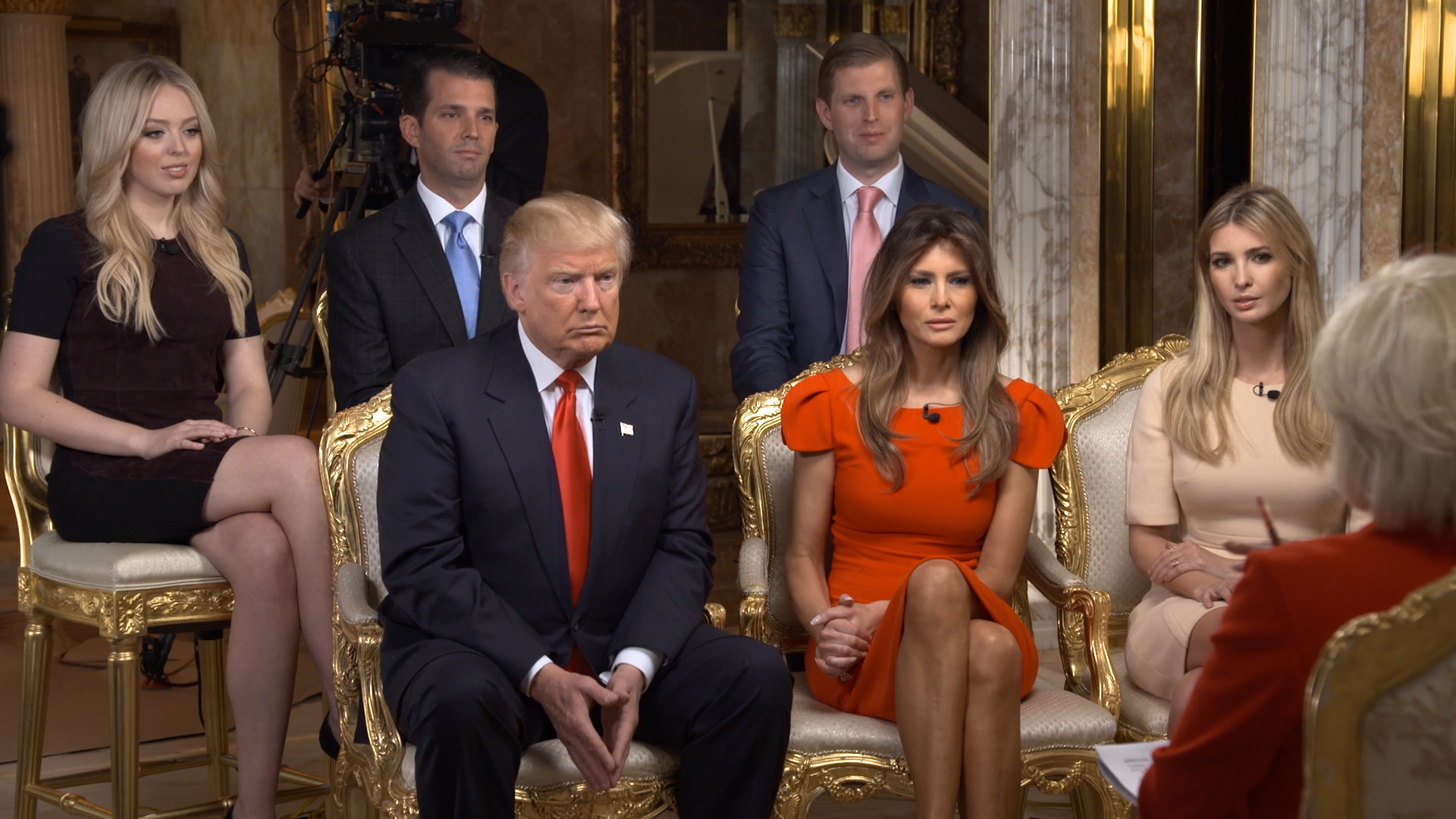
President-elect Donald Trump is making his move into political power a family affair: Trump is involving three of his children — Donald Jr., Eric, and Ivanka, plus son-in-law Jared Kushner — in his transition team, though he denies reports that the team requested “top-level” security clearance for the trio plus son-in-law and former New York Observer publisher Jared Kushner. Once he’s in the White House, they are supposed to be managing the real estate mogul’s business empire through a controversial “blind trust,” though some say they may also serve as “de facto” presidential advisors once he’s inaugurated — sparking questions about whether there’s a conflict of interest (though it’s not illegal).
But while it’s common for company founders to pass down their businesses to their kids, scholars say that’s not how the Founding Fathers wanted American presidents to manage the government. The colonies had had enough of the English monarchy, after all, and took specific steps to prevent presidents from involving their children in their administrations.
That’s one reason why Section 1 of Article II the Constitution states that one must be at least 35 years old to be the President is to prevent dynasties, argues Akhil Reed Amar, a constitutional law professor at Yale University, in his book America’s Constitution. A man under 35 is unlikely have offspring old enough to make a run for the White House, so any children with political aspirations would have to make their own way later. At the same time—at least given 18th-century life cycles—the child of a man spry enough to be president was unlikely to be old enough to serve, and thus could not take office should his father finish his term or die.
As James Monroe wrote in “A Native of Virginia, Observations upon the Proposed Plan of Federal Government” in 1788, “The Constitution has provided, that no person shall be eligible to the office, who is not thirty five years old; and in the course of nature very few fathers leave a son who has arrived to that age.”
Get your history fix in one place: sign up for the weekly TIME History newsletter
Amar explains that George Washington, who did not father any children (and whose stepson died in 1781), showed he was aware of dynastic potential in the first draft his first inaugural address. “The Divine Providence hath not seen fit, that my blood should be transmitted or my name perpetuated by the endearing, though sometimes seducing channel of immediate offspring,” he wrote. “I have no child for whom I could wish to make a provision—no family to build in greatness upon my country’s ruins.”
When John Adams was in line to succeed Washington, the media at the time worried that Adams sons would become the kind of hereditary aristocracy that they had just worked so hard to escape, while Jefferson wasn’t considered a threat in the same way because he only had daughters. Adams was the one who wrote in the 1780 Massachusetts constitution that “[Public service] being in nature neither hereditary, nor transmissible to children, or descendants, or relations by blood, the idea of a man born to a magistrate, law-giver, or judge, is absurd and unnatural.” Yet he also wrote in 1787 that he could see that, even in a democratically elected government, some public service would tend to run in families, as “children of illustrious families have generally greater advantages of education, and earlier opportunities to be acquainted with public characters, and informed of public affairs.”
His son John Quincy Adams would become the sixth U.S. president.
More Must-Reads From TIME
- The 100 Most Influential People of 2024
- Coco Gauff Is Playing for Herself Now
- Scenes From Pro-Palestinian Encampments Across U.S. Universities
- 6 Compliments That Land Every Time
- If You're Dating Right Now , You're Brave: Column
- The AI That Could Heal a Divided Internet
- Fallout Is a Brilliant Model for the Future of Video Game Adaptations
- Want Weekly Recs on What to Watch, Read, and More? Sign Up for Worth Your Time
Write to Olivia B. Waxman at olivia.waxman@time.com